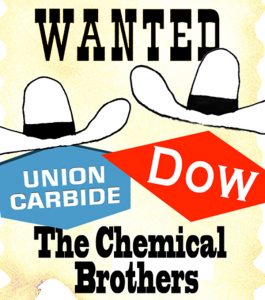
The Times of India reports that, at a press conference on March 31st, leaders of the organisations representing survivors of the Bhopal Disaster said: “Inaction on part of the government may lead to Union Carbide escaping criminal liability for the 1984 industrial disaster forever. Madhya Pradesh and Union governments are showing ‘apathy’ on the issue and this has raised the possibility of the American corporation, whose plant in Bhopal was the site of the disaster, escaping criminal liability, they alleged.”
Dow Chemical, the sole owner of Union Carbide, merged with the DuPont Co at the end of August 2017 and the newly merged DowDuPont is projected to split into three entities by June 2019. There is considerable concern as to where Union Carbide, along with its liability over the Bhopal Disaster and the ongoing contamination legacy, will lie within them.
One area of particularly grave concern relates to the criminal charges which remain outstanding against Union Carbide. Since criminal liability cannot be transferred from one entity to another, not even to a succeeding one, if Union Carbide ceases to exist in its current form, India’s courts will no longer have any power to pursue and enforce these serious criminal charges. The ToI piece explains how the survivors’ groups wrote to politicians, including the Prime Minister, demanding they take action to prevent the US multinational company escape criminal prosecution but have heard noting in reply:
“We have sought the prime minister’s intervention in enlisting support of US agencies to ensure Union Carbide and Dow Chemical abide by the orders of Indian courts… He is fully empowered by the Mutual Legal Assistance Treaty between the two countries to do this but so far he has chosen not to use these powers,” said Rachna Dhingra of the Bhopal Group for Information and Action.
Earlier, in September 2017, just after the merger, Baskut Tuncak, United Nations Special Rapporteur on the implications for human rights of the environmentally sound management and disposal of hazardous substances and wastes, expressed his ‘deep concern’ over the merger, also claiming it could obstruct justice for victims of the disaster.
In an article in The Independent, Mr. Tuncak said: “This merger creates yet another layer of legal hurdles for victims to arrive at any semblance of an effective remedy and accountability for a preventable disaster now more than 30 years old.”
Don’t allow Union Carbide escape court action, groups urge PM
Bhopal disaster victims may never get compensation following Dow-DuPont merger, fears UN official


